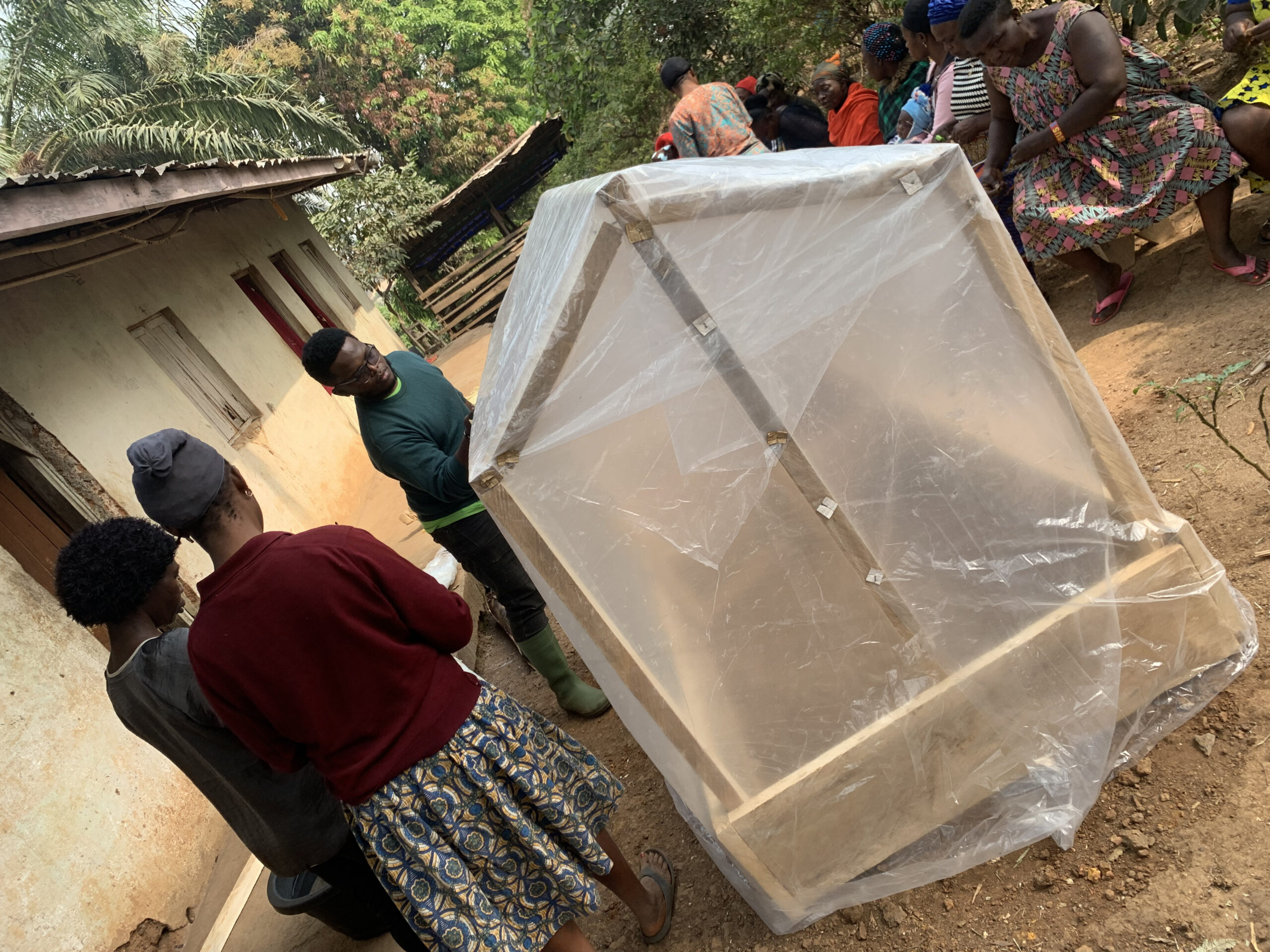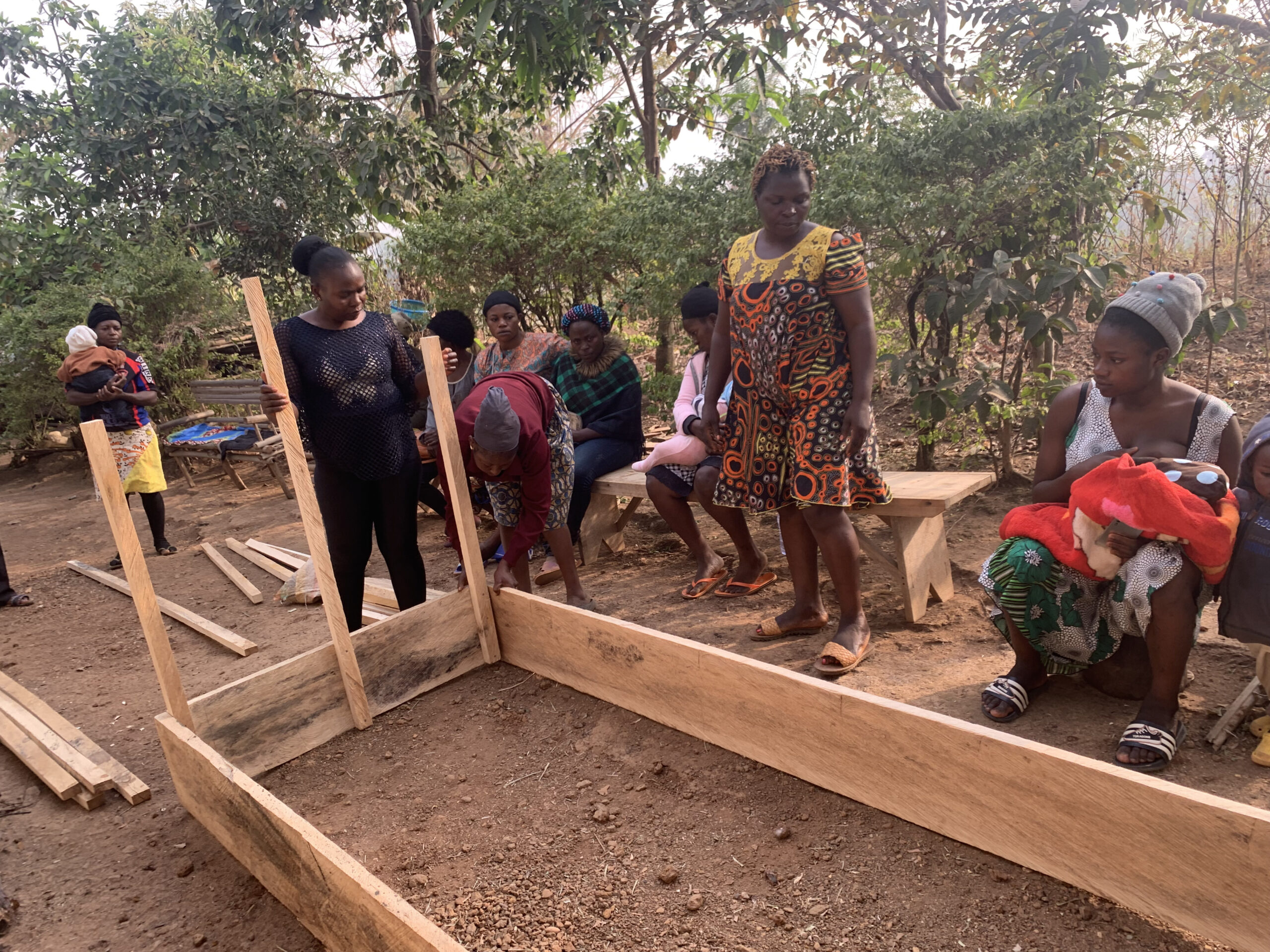Woman-led Cameroon Startup tackles Climate Change through Sustainable Agriculture
Mumita Holdings is helping farmers in climate-vulnerable Cameroon produce crops year-round using sustainable methods such as low-cost greenhouses and solar-powered irrigation. In the following interview, Mumita’s CEO Matiedje Nkenmayi Gislaine explains how winning the 2021 YouthADAPT Challenge helped her enterprise achieve its goals.
I
n Cameroon, farmers have historically relied on rain-fed agriculture for cultivation. Climate change has brought increasingly unpredictable rainfall patterns and pests, making planning for farmers more complex. More extreme weather including flooding and prolonged drought can strain production capacity, resulting in higher business costs and affecting market prices.
Less than 10 percent of vegetable and arable crop farmers have the resources to implement irrigation technologies to support production activities.
This is where Mumita Holdings comes in. The agricultural startup managed by Ms. Nkenmayi uses greenhouse technologies and irrigation systems to support the year-round production of African Indigenous Vegetables, rain or shine.
The company targets female farmers in rural areas engaged in producing African Indigenous Vegetables. African Indigenous Vegetables are not only culturally important, with deep roots in local food systems and cuisines, but they are also highly nutritious, well adapted to the local climate, and a source of income for women in rural areas in Cameroon. Their cultivation can help improve food security while preserving traditional knowledge.
Ms. Nkenmayi is one of 15 African young people whose businesses won the yearly African Youth Adaptation (YouthADAPT) Solutions Challenge in 2021. The Challenge has a strong focus on women and in 2021, seven out of the ten winning enterprises were women-led. Every winning business receives a development grant of US $100,000 and the opportunity to take part in a 12-month business accelerator program to help scale up their businesses, create more jobs, and deepen their impact.
The YouthADAPT Challenge was launched in 2021 by the Global Center on Adaptation (GCA), the African Development Bank (AfDB), and Climate Investment Funds (CIF) as part of the Africa Adaptation Acceleration Program (AAAP). Their aim is to boost sustainable job creation and empower youth and women in Africa by providing them with broader investment and economic opportunities. All winning enterprises provide climate adaptation and resilience solutions in sectors critically affected by climate change, such as agriculture, waste management, and water resources and sanitation.
For Nkenmayi, winning the YouthADAPT Challenge translated into multiple benefits for her business and for several communities in Cameroon.
In the interview below, she describes the challenges that climate change poses to her community and enterprise and how she is overcoming them, and discusses her experience as a YouthADAPT winner.

What solutions does Mumita Holdings offer to overcome the challenges that climate change poses in your community, including prolonged periods of drought and flooding?
Mumita proposes four main solutions to help adapt to climate change, including services and end products. The first is capacity building. Secondly, we accompany smallholder farmers during the course of production to obtain optimum yields. Thirdly, we provide services such as consultancy, high-quality seedlings for vegetables, solar-powered irrigation systems, and low-cost greenhouses. Solar-powered irrigation systems boost production and help year-round productivity. Farmers use greenhouses for seedling production to help them escape adverse environmental conditions. Finally, we purchase vegetables from farmers and dehydrate the vegetables to increase storage life. The aim is to make them available year-round at ambient temperatures and reduce costs incurred with storage.
What are some of the challenges and obstacles that you have encountered in trying to implement these climate adaptation solutions?
Cultural stereotypes. Some communities are very attached to their cultures and refuse to adopt new ways of crop cultivation and the quality of dehydrated vegetables. Also, the lack of machinery and storage capacity for the vegetables and finding markets to sell these vegetables.
What led you to apply to the YouthADAPT challenge last year?
The problems of finance to help and canopy many more smallholder farmers, buy standard machinery, and increase warehouse and storage capacity. Also, the visibility that such a challenge gives this business and the accreditation it will offer when we need funders. I also sought the capacity building which comes with the grant and the chance to be among the pioneers and policy makers.
How has YouthADAPT helped you to overcome the obstacles you mentioned?
Through the provision of finances to train more personnel and achieve our goals, YouthADAPT allowed us to purchase better equipment and implement greenhouse and irrigation technology. It helped to cut the cost of production and the final products delivered. Finally, the media coverage of the business has been very helpful.

What benefits did you personally derive from the YouthADAPT mentoring program?
YouthADAPT helped me broaden my scope, especially with respect to my network. It made me visualize my business growing bigger and reduced the stress involved in implementing solutions in the field. Most importantly, it gave me a sense of accomplishment since I have the opportunity to onboard more farmers.
What are the next steps for you? What are your hopes and ambitions?
At this level, we are able to cover some production basins on the national territory. The aim is to expand to more areas in Cameroon and sub-Saharan Africa. To do this, we need to get new markets and more machines to increase productivity.
I hope to be able to help communities adapt better to the changing climate and to develop solutions for, not only the direct impacts of climate change but equally, socio-cultural impacts. This is best done in collaboration with government bodies for sustainable solutions.
The AAAP, launched by GCA and the AfDB to mobilize $25 billion by 2025 for climate adaptation, focuses on food security, resilient infrastructure, adaptation jobs and climate finance. In its first 18 months of operations, the AAAP’s Upstream Financing Facility has influenced more than $3.5 billion in upstream investments with Multilateral Development Banks in 19 countries in Africa.